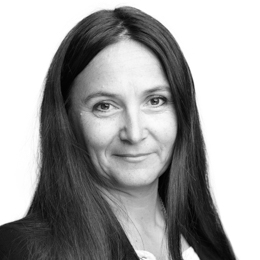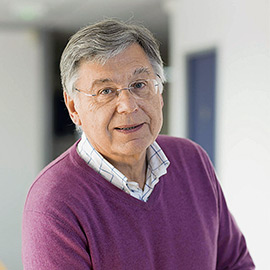As soon as you became head of the company in 2004, you opted for a 100% international strategy. Why did you make this decision?
Serge Bohyn: At the time, Sauermann was well positioned in France in its historic business line of condensate pumps for air conditioning systems. But this was a niche market, which was also in a field related to weather conditions and therefore highly exposed to seasonal variations. We had an export business but I firmly believed that we could not continue to exist without adopting a truly international approach, which implied establishing our presence in other countries. The time was right : we had identified a number of potential markets and it was the right time to take possession on the ground.
What was your rollout strategy?
S.B. : The first thing was to give the company - which until then was very Franco-centric - a shared international culture that formed an integral part of its everyday activities. We introduced an ambitious language-learning programme for all employees and began recruiting staff outside France. I didn't believe in ex-pat employees. We needed people with in-depth understanding of the cultural and economic specificities of our future markets.
The first real phase of our expansion was from 2004 to 2012, centred around four core principles: proximity, tools, innovation and people. In terms of proximity, we immediately began to put together a network of offices and subsidiaries, dividing the world up into three main regions: Europe / Middle East / Africa, Asia / Pacific and the Americas. In each of these main regions, we determined a key country (France, China, USA) with a plan for establishing our presence over a number of years. At the same time, we adopted effective industrial equipment and a structural ERP system. At the end of this first phase, in 2012, we were already present in 10 countries.
In 2012, you initiated a new development cycle. What was your vision?
S.B.: Following an initial phase with the intention of "existing" - our childhood, so to speak - we decided to better "delineate" the scope of our activities. We were aware that we had exhausted the main potentialities of our niche market, which would no longer allow us to continue to grow by 7% to 10% a year. And so we redefined our mission, establishing our position in a scope of our sector that responded to global challenges: Indoor Air Quality, in particular detection, measurement and controlling indoor air quality. In addition to our pumps - which are key pieces of equipment in controlling air flows - we acquired Kimo, a French company specialising in measurement instruments. This next phase of our expansion - our adolescence - which also includes the acquisition of a company in the United States (essential in the context of US protectionism), should be completed in 2018. The next thing will be for us to start our "lunar conquest" with the aim of becoming one of the top three in the sector worldwide.
Can Sauermann still be considered a French or even European group?
S.B.: Less and less so. At present, we have a very decentralised organisational structure and culture with three regional head offices and no global head office. The holding support company for these three regions is responsible for ensuring the consistency of our expansion, but we are heading towards an ever-higher level of autonomy on an operational level. Each flagship country has its own sales teams and production plants. Even today, this proximity-based approach implies decentralised R&D in order to offer solutions tailored to the specific needs of each region. This globalised spirit can also be found within our governance structure, which includes Europeans, Asians and Americans.
Is this international dimension also reflected in your shareholding structure?
S.B.: Yes, as we have involved our senior managers or old importers that we have bought. The presence of Crédit Mutuel Equity (formerly CM-CIC Investissement) as a shareholder, with the availability of its foreign offices, particularly in the Americas, offers us continuity of support in all regions and ensures our long-term stability as a whole.
What the partner says

Sauermann is a company that has completely rethought its organisational structure in the light of the challenges of digital transformation, in order to capitalise on future growth relating to the Internet of Things.
Its teams are united around the single goal of helping to improve indoor air quality all over the world, by offering end users an ecosystem of products and services combining all available technologies.
This roadmap addresses all aspects of transformation, including optimising processes and the need to adapt IT systems (integrated ERP, CRM tools, content marketing etc.) and thinking about international deployment across three continents, with the same level of closeness to clients. And therefore establishing a regional and cross-functional governance structure. Diversifying the range of technologies by means of acquisitions, partnerships or strategic recruitment. And then orchestrating shareholding for key employees in order to ensure the durability of our managerial structure.
Our role as investor is also changing. We need to share and question each stage of this growth and these reflections. And be ever more vigilant about the profound impact of this digital transformation on how companies work and are organised.
€65m of revenue
50% of revenue generated outside France
11 branches worldwide




